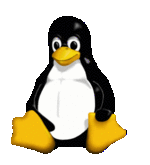What is Linux
From TWUUG
"Linux", itself, is really just the kernel of a free and open-source operating system based around GNU ("GNU is Not Unix") compilers and tools. But most people call this collection of parts that form the OS by just "Linux".
Linux is essentially a free clone of the Unix operating system. It was born out of the work of Linus Torvalds, a Finnish student, who wanted to futher the cause of having a useful and free Unix OS in 1991. Others saw that what he did was good and started contributing to this new kernel. Today, there are thousands of people who contribute code to Linux and many more thousands contributing to the many supporting applications, compilers, and tools that make up Linux distributions.
Like the commercial Unix, Linux is a true multiprocessing, multiuser, multitasking, multithreaded, multiplatform, standards-based environment. However, unlike Unix, Linux is free, volunteer driven, vendor neutral, non-commercial, and open source.
There are literally many millions of machines running Linux, throughout the world, on a variety of different platforms. From watches, PDA's, TiVo's, and home computers, to servers, mainframes, and supercomputers; Linux has been ported to just about every popular CPU for every environment. Linux has proven itself to be extremely flexible, reliable, and cost effective. Almost all major corporations use Linux somewhere in their organizations. Some giants, like Google, use Linux almost exclusively.
Read more about Linux at:
- Linux.org Linux Home Page
- Linux.com: Enterprise Linux
- Linux Headquarters
- Kernel.org: Linux Kernel Archives
- Wikipedia
